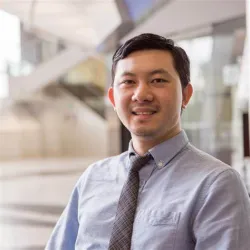Professor Si Ming Man

Content navigation
About
Training:
- UNSW Australia, Sydney, Australia
- University of Cambridge, UK
- St Jude Children’s Research Hospital, Memphis, Tennessee, USA
Honours and Awards:
- Fellow, The Royal Society of NSW (2023)
- Australian Academy of Science Gottschalk Medal (2023)
- UNSW Alumni Award for Research & Teaching Achievements (2023)
- Frank Fenner Prize for Life Scientist of the Year, Prime Minister's Prizes for Science (2022)
- CSL Centenary Fellowship (2021)
- Australian Society for Medical Research Peter Doherty Leading Light Award (2020)
- Australian Society for Biochemistry & Molecular Biology Eppendorf Edman Early Career Award (2020)
- The Australian National University Vice-Chancellor's Award for Early Career Academic Excellence (2020)
- Commonwealth Health Minister's Medal for Excellence in Health and Medical Research (2019)
- The Royal Society of NSW Edgeworth David Medal (2019)
- NHMRC Research Excellence Award for the highest-ranked Career Development Fellowship Biomedical Level 1 (2019)
- American Association of Immunologists Pfizer-Showell Award (2019)
- Fellow, The Australian Society for Microbiology (2019)
- Australian Society for Microbiology Jim Pittard Early Career Award (2017)
- American Association of Immunologists Thermo Fisher Trainee Achievement Award (2016)
- International Cytokine & Interferon Society Milstein Young Investigator Award (2016)
- NHMRC Research Excellence Award for the highest-ranked Early Career Fellowship (2015)
- NHMRC/R.G. Menzies Early Career Fellowship 2015–2018
- Neoma Boadway Endowed Fellowship – St Jude Children’s Research Hospital, 2014
- Cambridge International Scholarship, University of Cambridge, U.K. 2009–2013
- UNSW Faculty of Science Award for Excellence in Sessional Teaching – UNSW, 2009
Awards
Affiliations
Research interests
Our lab investigates the role of innate immunity in infectious diseases and cancer. Pattern-recognition receptors are germ-line encoded innate immune sensors which detect pathogen-associated molecular patterns (PAMPs) and danger-associated molecular patterns (DAMPs). These receptors activate signalling pathways and mediate the production of inflammatory cytokines, type I interferons and other anti-microbial molecules. We use cutting-edge technology to study the mechanisms by which host sensors recognise bacteria, viruses and parasites, and how these sensors shape the overall immune response to infection. We also study the molecular basis by which uncontrolled inflammation can lead to the development of cancer, autoimmunity and inflammatory diseases.
Student Projects
- Uncovering how host cells recognise and respond to intracellular pathogens and danger signals.
- Unravelling the molecular mechanisms of inflammasome formation.
- Understanding the role of innate immune sensors in regulating the development of cancer and the composition of the gut microbiota.
- Identifying novel activators and inhibitors of the innate immune system to prevent and treat infection, autoinflammatory diseases and cancer.
Location
Room: 3.216
